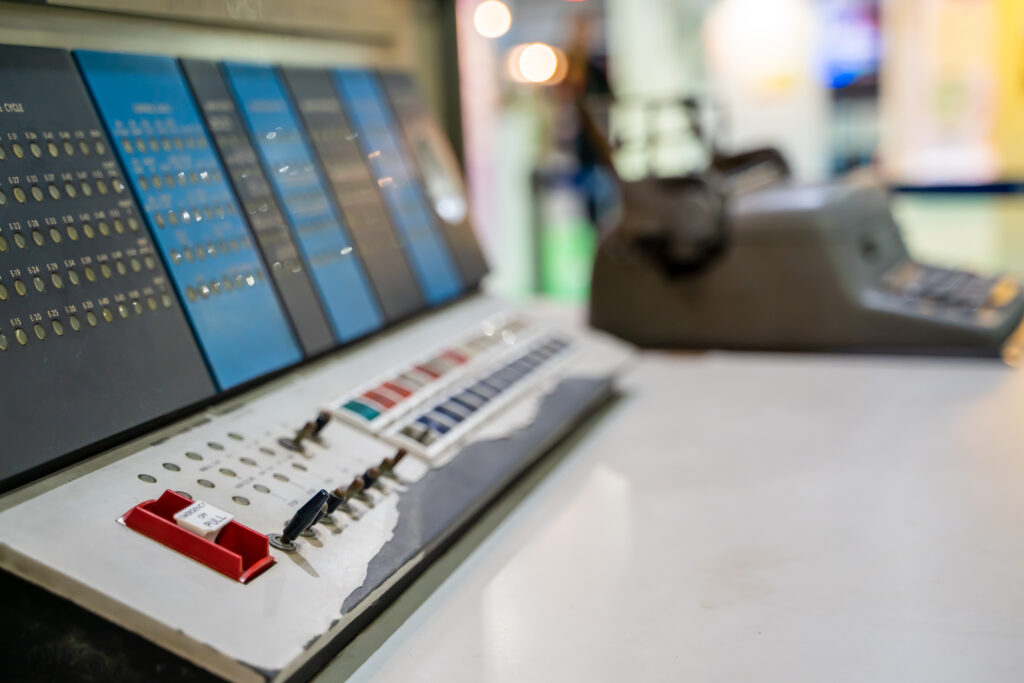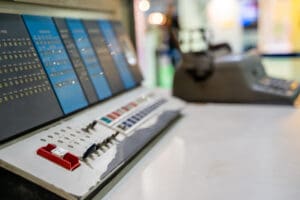

Do you know those massive computers in old movies? The ones with rows of blinking lights and lots of buttons, as featured in Dr. Strangelove and so many other films? Those weren’t the product of a Hollywood imagination—they were based on the Q7 used by the Air Force in SAGE, the nation’s first air defense system. In some cases, the prop computers were actual decommissioned Air Force equipment! Learn all about it in this edition of Tech Time Warp.
The birth of SAGE
The Semi-Automatic Ground Environment, or SAGE, was first disclosed to the public on Jan. 16, 1956. The impetus for SAGE came after the 1949 discovery that the Soviet Union had developed its own atomic bomb. Additionally, the Soviets had the aircraft capability to reach the U.S. via the Arctic, further heightening the need for advanced air defense. The Air Force asked the Massachusetts Institute of Technology (MIT) to help develop a computer-based air defense system that would link radar stations in North America to warn of impending attacks.
This was a great idea, but it required many tech innovations that weren’t yet reality. With MIT’s new Lincoln Laboratory as a base, computing pioneers IBM, Burroughs, Western Electric, and SDC/The RAND Corporation worked together to make SAGE happen. IBM credits the SAGE project with 80 percent of its computing revenue between 1952 and 1955 and counts the automated flight reservation system SABRE as a project spinoff. SAGE was IBM’s largest contract since the Social Security Administration’s accounting system in the 1930s.
SAGE became fully operational in 1963 and ultimately linked 23 sites in the U.S. and Canada. By that time, the primary nuclear threat had shifted from aircraft to missiles. However, some SAGE sites remained operational until 1983. At the project’s height, SAGE employed 20 percent of the world’s computer programmers.
Did you enjoy this installation of SmarterMSP’s Tech Time Warp? Check out others here.
Photo: Jean Luc Ichard / Shutterstock
This post originally appeared on Smarter MSP.

